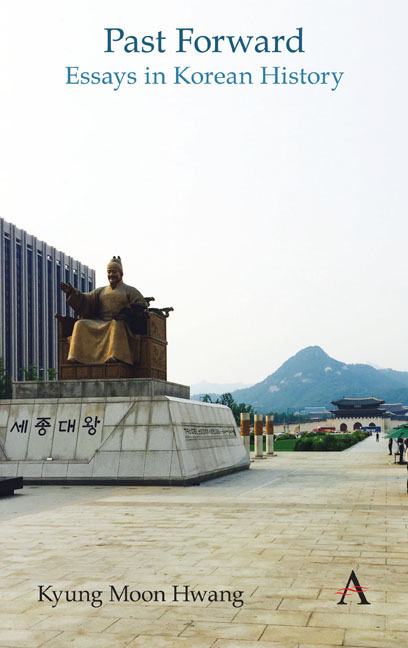Book contents
- Frontmatter
- Contents
- List of Figures
- Foreword
- Chronologies of Korean History
- Themes
- Acknowledgments
- Note on Romanization and Spelling
- Part I Circulating History
- 1 Recycling Names for Korea
- 2 Toppling Tyrants
- 3 Religion and Secularism
- 4 Commemorating the Comfort Women
- 5 May 16 and May 18
- 6 Tragedy and Farce
- 7 Generational Renewal
- Part II Durable Traditions
- Part III Ancient Remains
- Part IV Dynastic Depths
- Part V Modern Origins
- Part VI Challenges of Nationhood
- Part VII History Makers
- Part VIII External Presences
- Part IX Trials of Modernization
- Part X Gripped by the Past
- Index
1 - Recycling Names for Korea
from Part I - Circulating History
- Frontmatter
- Contents
- List of Figures
- Foreword
- Chronologies of Korean History
- Themes
- Acknowledgments
- Note on Romanization and Spelling
- Part I Circulating History
- 1 Recycling Names for Korea
- 2 Toppling Tyrants
- 3 Religion and Secularism
- 4 Commemorating the Comfort Women
- 5 May 16 and May 18
- 6 Tragedy and Farce
- 7 Generational Renewal
- Part II Durable Traditions
- Part III Ancient Remains
- Part IV Dynastic Depths
- Part V Modern Origins
- Part VI Challenges of Nationhood
- Part VII History Makers
- Part VIII External Presences
- Part IX Trials of Modernization
- Part X Gripped by the Past
- Index
Summary
A country's name naturally reflects its history. For example, there are about a half-dozen official monikers for Germany in different regions and languages, a sign of Germany's long and fractured existence before it became a unified state in the nineteenth century.
Korea's story is somewhat different. With the exception of the Mongolian word, “Solongos,” which also carries a fascinating history, there are three basic names for Korea around the world: Goryeo (Korea), Joseon and Hanguk. Over its long history, many different expressions have been used, both by neighbors and among Koreans, but these three have become standardized in recent times. Even more interesting is that each of these three terms was revived from an ancient historical period and, in the modern era, underwent further modification in line with political shifts. Such recycling of words for Korea thus shows both the civilization's longevity and its people's awareness of their shared past.
The oldest of the three names is probably “Joseon,” which appeared in ancient Chinese records in reference to a political entity on the northern part of the peninsula and extending into Manchuria. This connection later became the basis for national myths about Korea's primordial origins, myths still promoted in both Koreas today.
Joseon was replaced by the kingdom of Goguryeo, a more verifiable state that ruled over the same territory beginning about 2,000 years ago. Contemporary Chinese sources, using colorful descriptions of customs and rituals, described Goguryeo as one of several groups on the peninsula, which included the three “Hans” (Jinhan, Mahan and Byeonhan), tribal confederations on the peninsula's southern half. The term “Han” appears to have come from a native word for “great” or “big,” perhaps also “king,” but was assigned an ideograph (?) that referred also to an ancient Chinese kingdom. This added to the confusion, but thereafter the Three Hans, or “Samhan,” became a conventional reference for the peninsula.
This was the case even after the ancient Three Kingdoms era (again, confusingly, a term that also referred to a period in Chinese history) came to an end in the seventh century CE with the conquest of Goguryeo and Baekje by Silla.
- Type
- Chapter
- Information
- Past ForwardEssays in Korean History, pp. 2 - 4Publisher: Anthem PressPrint publication year: 2019



